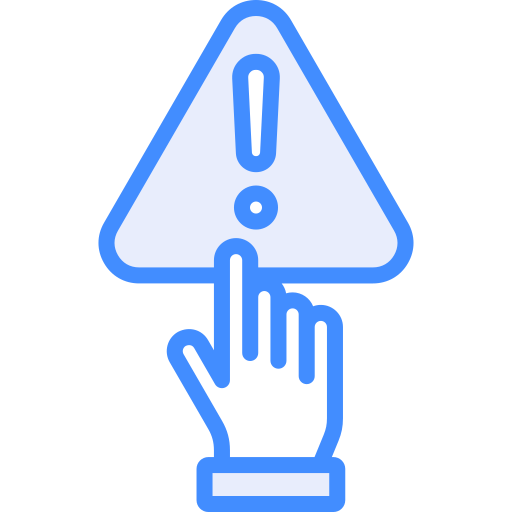Payday Lenders in Wisconsin
Payday Loan Laws
Wisconsin laws surrounding payday loans are designed to protect consumers by requiring they be licenced and limiting the loan terms. The state also requires that borrowers be offered a chance to sign a repayment plan that is paid back in 4 equal payments once every 12 months Under this repayment agreement, lenders must reduce the finance charge to 2.75%..
Payday loans are regulated by Wisc. Stat. Ann. §138.14, also known as the Wisconsin Consumer Act, which sets the loan term limits, debt collection limits. This statue also allows for one rollover and establishes a 24 hour cooling off period between loans that have been renewed.

Loan Terms and Conditions
Maximum loan amount: $1500 or 35% of monthly income (whichever is less)
Maximum Interest Rate: 863%
Minimum loan term: no minimum in regulation
Maximum loan term: 90 days
Number of rollovers allowed: 1
Finance Charge: no limit specified in regulation
Legal action: 6 Years
Certified Payday Lenders in Wisconsin
| Company Name | Company score | License Status |
| ENOVA INTERNATIONAL, INC. | 7.8 | Valid |
| CURO Intermediate Holdings | 7.5 | Valid |
| MoneyLion Inc. | 6.8 | Valid |
| CNG FINANCIAL CORPORATION | 6.1 | Valid |
| Cottonwood Financial Ltd. | 5.8 | Valid |
| AmeriCash Holding LLC. | 5.4 | Valid |
History of Wisconsin Payday Loans
How to file a complaint
- ADDRESS
- Bureau of Consumer Affairs, PO Box 8041, Madison, WI 53708
- 608-264-7969
- Website
Wisconsin Payday Loans Debt Relief
How to Get out of Payday Loan Debt?
Types of Quick Loans in Wisconsin
Alternatives to Payday Loans in Wisconsin
Personal Loans
Personal loans are an unsecured borrowing option for Wisconsin residents, meaning they do not need to provide collateral to back the loan. Rates and terms can differ depending on the lender, and the borrower's history. Some lenders will require a certain credit score or minimum income to qualify while others are more flexible. Borrowers are encouraged to shop around, compare terms and rates from different lenders and find the loan that best suits their financial needs.
Home Equity Loans
Home equity loans in Wisconsin are popular because they allow homeowners to access funds for home improvements or even non-home related expenses like college tuition. Home equity loans usually come with a fixed-rate and have terms of five to thirty years, depending on the amount of equity that a homeowner has built up over their years of ownership and their creditworthiness. It is important to keep in mind that a home equity loan can put your house at risk since lenders have the option to foreclose if the borrower fails to pay.
Construction Loans
Construction loans provide funding specifically designed to support the construction of a new home or renovation of an existing home. Wisconsin offers a range of construction loan options, allowing borrowers to choose the best financing solution based on their project's scope and budget. Lenders will look at factors such as the borrower's creditworthiness, construction plans, and the anticipated timeline to determine loan eligibility and terms. These loans provide flexibility, enabling borrowers to draw funds as needed throughout the construction process. With varying interest rates and repayment options, construction loans empower Wisconsin residents to turn their visions into reality.
Bad Credit Loans in Wisconsin
Borrowers with low credit scores can benefit from Wisconsin bad credit loans. These loans can help people with bad credit to rebuild and get on track since they can provide funding when other options are not available. However, they usually have higher interest rates than traditional loans. It is best to compare the rates and terms of these loans offered by many lenders in Wisconsin before making a decision. It is also important to ensure that you can afford your loan payments before taking out the loan. Credit score improvement is dependent on timely loan payments.
Wisconsin Small Business Loans
Wisconsin provides several types of small business loans with different requirements and terms:
- SBA loans: The Small Business Administration offers loans through its network of lending partners for eligible small businesses in Wisconsin.
- Wisconsin Business Development (WBD) Loans: Loans provided by WBD, a non-profit corporation, to promote economic development and job creation in Wisconsin.
- Wisconsin Women's Business Initiative Corporation (WWBIC) Loans: Loans specifically tailored to support women-owned businesses in Wisconsin.
- Invoice Financing: Financing solutions that allow businesses to access immediate funds by selling their accounts receivable or invoices to a lender at a discount, providing a more consistent cash flow.
- Equipment Financing: Loans specifically designed to help businesses acquire the necessary equipment or machinery for their operations, with the equipment serving as collateral for the loan.
VA loans in Wisconsin
VA loans in Wisconsin serve as an attractive mortgage option for eligible military members, veterans, and their surviving spouses, providing a range of benefits backed by the Department of Veteran Affairs. With no down payment requirements, lower interest rates, and no private mortgage insurance (PMI) obligations, these loans offer a compelling solution for homeownership. Wisconsin residents who meet the specific eligibility criteria, including serving a minimum active duty term or being the surviving spouse of a deceased veteran, can take advantage of VA loans for various purposes such as purchasing a home, refinancing, or making home improvements. VA loans in Wisconsin have a maximum cap of $726,200 for all counties. Whether military personnel or veterans, Wisconsin residents can leverage the advantages of VA loans to secure affordable and accessible financing options while pursuing their homeownership goals.
Wisconsin Student Loans
Many options are available to Wisconsin students to help finance their college education. These options include:
- Federal Student Loans: Wisconsin students have access to federal student loans, an invaluable financial resource that they can use for college tuition and other associated costs.
- Wisconsin Technical Excellence Scholarship: Merit-based scholarship awarded to Wisconsin high school seniors pursuing eligible programs at Wisconsin Technical Colleges.
- Parent PLUS Loans: Parent PLUS Loans are federal loans that allow parents of dependent undergraduate students to borrow money to pay for their child's education. These loans have fixed interest rates and flexible repayment plans.
- Private Student Loans: Offered by banks, credit unions, and other private lenders, and often have higher interest rates than federal or state funding. Students can use these to cover education expenses that federal loans don't cover.
Wisconsin Income Information
United States Census Bureau. “Poverty in the United States: 2021.” Accessed on May 8, 2023.
United States Census Bureau. U.S. Census Bureau QuickFacts: Wisconsin. Accessed on May 8, 2023.
Wisconsin Payday Lender Complaints
| Company Name | Count |
| ENOVA INTERNATIONAL, INC. | 21 |
| CURO Intermediate Holdings | 16 |
| MoneyLion Inc. | 3 |
| CNG FINANCIAL CORPORATION | 14 |
| Cottonwood Financial Ltd. | 11 |
| AmeriCash Holding LLC. | 9 |
| Total Complaints | 207 |
Consumer Financial Protection Bureau. Consumer Complaint Database. Accessed on May 8, 2023.
Most Common Issues
| Complaint type | Count |
| Charged unexpected interest or fees | 54 |
| Received a loan you never applied for | 33 |
| Can’t contact lender | 26 |
| Struggling to pay loan | 17 |
| Problem with payoff process | 12 |
What are the main reasons residents of Wisconsin apply for payday cash advance online or offline
Payday loans are typically used for nonnegotiable everyday expenses like your rent, utilities, and groceries. Per data reported by Pewtrust, the percentage of reasons described below
| Reason | Share |
| Regular Expenses (Utilities, car payment) | 53% |
| Unexpected emergency/expense | 16% |
| Rent/Mortgage | 10% |
| Something Special | 8% |
| Other | 5% |
| Did not answer | 2% |
Payday Lenders by City
- Milwaukee
- Madison
- Green Bay
- Kenosha
- Racine
- Appleton
- Waukesha city
- Eau Claire
- Oshkosh
- Janesville
- West Allis
- La Crosse
- Sheboygan
- Wauwatosa
- Fond du Lac
- Brookfield
- New Berlin
- Wausau
- Menomonee Falls
- Greenfield
- Franklin
- Beloit
- Oak Creek
- Sun Prairie
- Manitowoc
- West Bend
- Fitchburg
- Mount Pleasant
- Neenah
- Superior city



